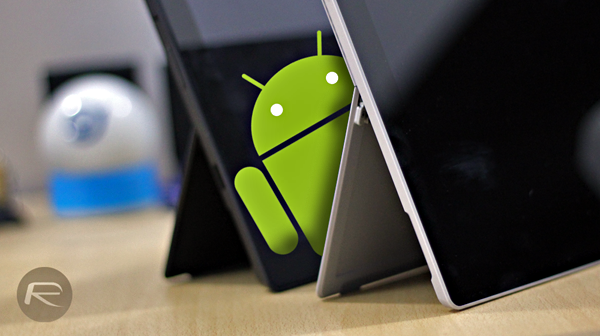Ubuntu has been striving hard to establish itself as a key smartphone player for some time now, and finally, its phone OS has found a device it can claim home to. Enter - Aquarius E4.5 Ubuntu Edition, coming in from a Spanish company called BQ. More details can be found after the break.
A while back, when the world was made aware of the Heartbleed bug, there was hue and cry all over, mainly because the bug was discovered in a system that was widely used and implemented across the Internet. Today, a new threat has surfaced that's perhaps bigger than Heartbleed. Labeled the Bash bug - or Shellshock - the new vulnerability affects almost all Linux and Unix based systems, as the vulnerability exists in the Bash command that's widely implemented in Unix systems. The good news, at least for Mac OS X users, is that Apple is actively working to patch it and release a fix that can put users' minds at ease.
The guest accounts feature present on most desktop operating systems is key, for it allows users to share their devices and machines with friends or family whilst maintaining privacy. If you just wish to let somebody use the Web for a quick search, though, logging out of your own account and loading up the guest profile is a bit of a drawn-out process. A new Chrome beta released by Google makes it easier to share your Chrome browser with the aforementioned thanks to the introduction of guest mode, meaning that you can permit folk to surf the Web on your device without potentially revealing any of your data.
The touch-based environment has risen to prominence over the past few years, with many skeptics and naysayers having been won over in the process. As well as the increase in the number of smartphones, tablets and other touch-enabled gadgets sold every year, we've also seen efforts to bring gestures to our regular computers and notebooks. Some have focused on air gestures, allowing users to swipe using simple hand signals, while others, like the $75 offering seen below, have sought to turn everyday surfaces into touch panels.
The jailbreak scene has a rich tradition of releasing jailbreak tools for Mac OS X initially, with a Windows / Linux roll-out following shortly thereafter. However, the Pangu jailbreak collective from China turned the scene on its head in more than one way with the recent release of their untethered jailbreak for iOS 7.1.x, and given its Windows-only nature, many folks were left scrambling around trying to locate an old PC. Pangu did promise that a Mac edition would be forthcoming, though, and it has since come to light that the team is currently working to deliver on its promise.
Like most industries, the technology space can sometimes be full of misinformation and false promises, which makes it even more rewarding when companies actually come up with the goods. In an effort to instill the festive feeling amongst the Linux hacking community, Valve has come good on the promise they made earlier this week by making their SteamOS available for all to download.
In its efforts to remain relevant in light of Google Chrome's emergence over the past couple of years, Mozilla has continued to pump out the updates to its famed Firefox browser. Today brings another fleet of new features and improvements to the major desktop platforms as well as Android, capped off with an ever-so-slight alteration to the logo. Details after the break.
Although the three major smartphone ecosystems are seen as iOS, Android and Windows Phone, there are actually several others also battling for recognition in the evermore crowded industry. As well as the likes of the revamped BlackBerry OS and Mozilla's Firefox effort, Canonical has been making waves with its attempt to bring the popular Ubuntu flavor of Linux to the small screen, dubbed as Ubuntu Phone OS. Having delivered impressively with its previews versions of the OS for both smartphone and tablet, it now looks as though Canonical is going to come through with its own smartphone; the Ubuntu Edge.
Ubuntu is trying desperately to transition from hugely popular enthusiast platform to mainstream competitor for Mac OS X and Windows. It's fair to say that it has had limited success in doing that so far, but much is resting on the latest big release of Ubuntu, which is almost comically called 13.04 - Raring Ringtail.
Firefox has been one browser that has improved a lot over time, and while Internet Explorer continues to receive the negative feedback from users across the globe, Mozilla’s offering has actually grown into a worthy contender against almost any internet browser, most notably Google Chrome. Mozilla’s focus towards bringing the best of the best to its users continues, and with the release of Firefox 20, they’ve brought some much needed (and appreciated) enhancements to their already popular browser. The new Firefox 20 has not only been released for desktop systems – including Windows, OS X and Linux – but also for Android, albeit with a slightly different change log. Let’s take a look at what’s new and improved just past the fold.







